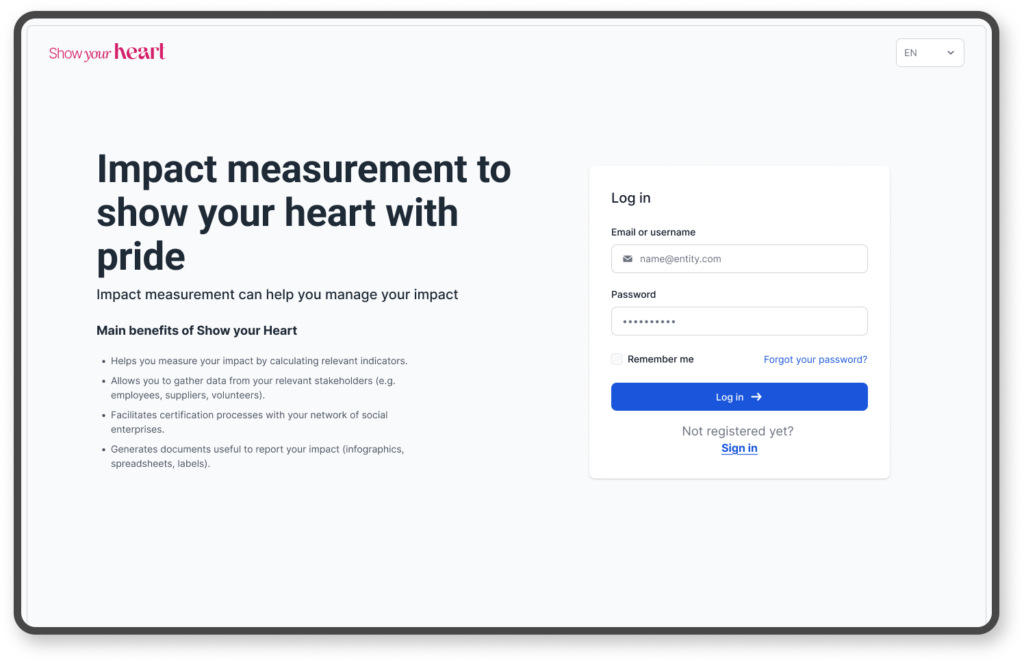
Environmental, social and governance (ESG) accounting involves assessing and reporting an organisation’s impacts. It is a key tool for transparency, accountability, and strategic management, often presented in sustainability reports or in integrated reports, alongside financial data.
Due to growing pressure from consumers and governments, ESG accounting is becoming increasingly important. However, the field is complex, with numerous methods and standards reflecting diverse economic paradigms, industries, and regulations. This abundance creates challenges for organisations in choosing the right framework, for governments in setting legal criteria, and for researchers in comparing methodologies. We now introduce a couple of relevant ESG accounting methods.
Voluntary Sustainability Reporting Standard for non-listed SMEs (VSME)
The Voluntary Sustainability Reporting Standard for non-listed SMEs (VSME), developed by the European Financial Reporting Advisory Group (EFRAG), is designed to assist small and medium-sized enterprises (SMEs) in disclosing sustainability-related information in a simplified and consistent manner. Released in December 2024, the VSME aims to streamline the reporting process for SMEs that are not subject to the Corporate Sustainability Reporting Directive (CSRD) but still encounter increasing demands for environmental, social, and governance (ESG) data from larger companies, banks, and investors.
The VSME standard is structured into two modules to accommodate the varying capacities and needs of SMEs:
- Basic Module: Intended for micro and small organisations, this module covers fundamental sustainability topics, including general information, environmental metrics (such as energy consumption and greenhouse gas emissions), and social metrics (like workforce characteristics and health and safety).
- Comprehensive Module: Designed for medium-sized organisations or those seeking to provide more detailed information, this module includes additional disclosures on topics like climate-related targets, transition plans, and human rights policies.
To further support SMEs in implementing the VSME standard, EFRAG plans to develop guidance materials, educational resources, and conduct awareness-raising events throughout 2025.
For more detailed information, the full VSME standard is available on EFRAG’s website.
REAS Social Audit/Balance
The Spanish Network of Networks of Alternative and Solidarity Economy has developed a self-assessment method that organisations within the Social and Solidarity Economy can use to evaluate their performance based on ethical, social, and environmental principles. It promotes transparency, accountability, and continuous improvement while showcasing the values of responsible businesses.
The key purposes of the method are:
- Encouraging self-reflection to enhance organisational practices.
- Helping organisations set improvement goals aligned with Social and Solidarity Economy principles.
- Strengthening the Social and Solidarity Economy through collaboration and recognition.
- Providing public transparency and disclosure of ethical business practices.
The method involves a questionnaire analysing an organisation’s performance on economic, environmental, social and governance topics. It evaluates adherence to equity and inclusion, fair wealth distribution, labour quality, cooperation with other social enterprises, ecological sustainability, and commitment with the local community.
The method has a core set of ESG impact indicators that all members of the network report on. This allows for compelling and comprehensive aggregated reports that show the true colours of social enterprises and are often used for identity building and political lobbying. See some examples in our Resources page.
The method then several variants that are tailored to the characteristics of regional networks of social enterprises, or sectorial networks focused on specific impact areas.
The method is supported by The Show your Heart tool. Find more details in the REAS Social Audit/Balance website (in Spanish).
GRI Standards
The Global Reporting Initiative (GRI) Standards are the world’s most widely used framework for sustainability reporting, helping organizations measure, manage, and disclose their environmental, social, and governance (ESG) impacts. They provide a structured, transparent, and comparable approach to non-financial reporting.
It has a modular structure. It includes Universal Standards with some core principles, Sector Standards defining industry-specific guidelines, and Topic Standards detailing ESG topics like emissions, labor rights, and anti-corruption.
It is also based on the materiality principle. While it offers a wide array of standards, the organisation should focus on the ESG topics that are most significant to their impact and the interests of their stakeholder groups.
The GRI Standards are recognised by regulators, investors, and stakeholders, aligning with frameworks like Corporate Sustainability Reporting Directive (CSRD) of the European Union, the reporting standards of the International Sustainability Standards Board (ISSB), and the United Nations Sustainable Development Goals (SDGs).
